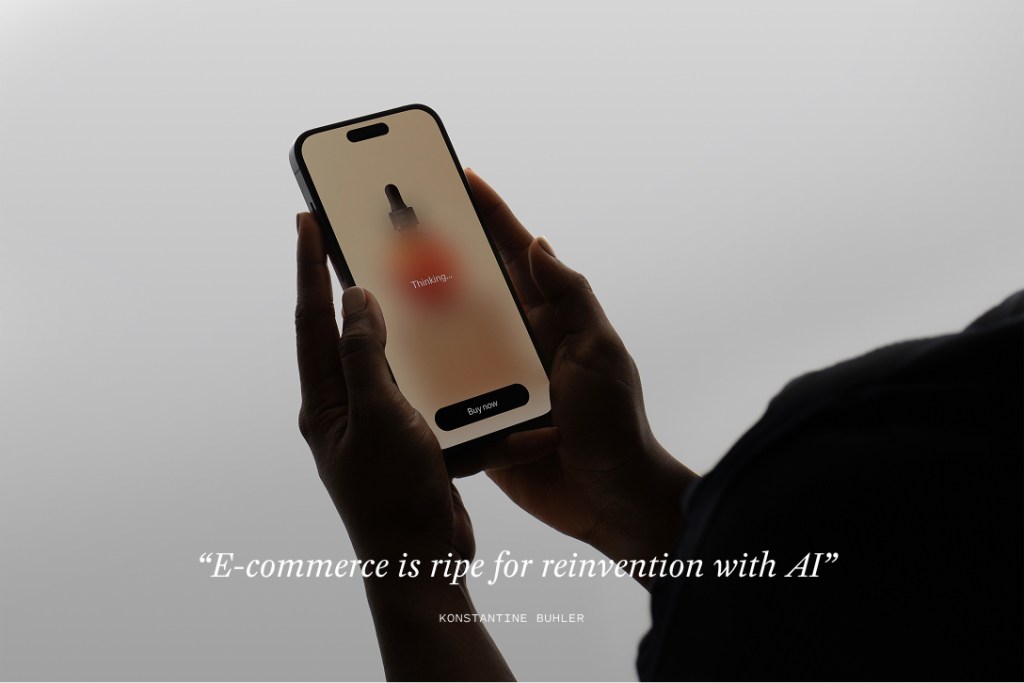Building Tomorrow’s Transformational Companies
Launching our latest seed and venture funds for the next generation of legendary companies.
We are excited to launch our latest venture fund and our sixth dedicated seed fund to continue partnering with the next generation of outlier founders at the start of their journey.
There is something magical about forming partnerships in the earliest days and then witnessing their evolution. Initial ideas grow into legendary companies—from Apple to Nvidia to Stripe to Wiz. This keeps us dreaming about the possibilities of the future. Today, founders face a once-in-a-generation opportunity, as AI is poised to reimagine every industry. We are at the precipice of a foundational platform shift as transformative as the rise of the internet. As with any tech supercycle, there will be both euphoria and troughs of disillusionment, but when we look back thirty years from now, generational companies will have been created that alter our world in unimaginable ways.
We seek founders of any background from around the globe who see possibility where others see limits, with the unshakable grit to turn impossibility into reality. As we launch our latest seed and venture funds, we asked our Early team to share a few emerging themes that excite them about the opportunities ahead:
Lauren Reeder
“Video and image models have come a long way in terms of character consistency, crisp editing and photorealism. This step change will enable a host of new applications to be built on top. I’m particularly excited about how that gets applied to the world of consumer apps. We connect better and are more engaged by videos and images than we are with text. There’s a whole new category of companies to be created around these new models.
I’m also excited about the evolving infrastructure layer of the software development stack. We’ve seen what it takes to build an application change dramatically with LLMs at the core. As the app layer matures, it’s becoming clearer what new infrastructure primitives are needed to build the next generation of applications.”
Bogomil Balkansky
“Security and observability are two huge, interesting domains in need of solutions. LLMs can’t effectively solve problems in these domains off the shelf, because there are no public sources of security data or observability data to train them. Since LLMs alone are not enough, these are fruitful fields for companies to innovate with other forms of AI and find new solutions.”
Josephine Chen
“We’re about to see a new world of consumer apps. Anytime there’s a platform shift, it opens up new dimensions in how people live. Stablecoins will change how consumers interact with financial services. Healthcare will transform as people take their health into their own hands with the help of LLMs. We’re also seeing step function changes in voice, video and robotics: these will fundamentally shift the way people interact with technology and with each other.”

Luciana Lixandru
“I am excited to meet founders who use Europe as their product and engineering hub, but who want to take over the world. Europe’s founder pool has never been stronger. A new wave of repeat entrepreneurs and alumni from breakout scaleups bring hard-won judgment, world-class product taste, and the muscle memory of going from zero to global.”
Dean Meyer
“One of the most interesting opportunities is in network security, which is going through a fundamental reset. The network itself is evolving to more distributed users across more applications and edge devices. AI is accelerating this shift, and the volume of requests is multiplying. We believe the next generation of network security will likely be identity-driven—built around users, devices, and even AI agent permissions.
Also, as more data centers come online, we’re thinking about data center security. As AI workloads concentrate in specialized hardware, the infrastructure is turning into a new attack surface. Securing the new compute layer, not just the network, is becoming critical.”
Konstantine Buhler
“E-commerce is ripe for reinvention with AI. There is a huge opportunity in usage revenue (as in, AI agents getting paid to do tasks like a person might) as well as new monetization for purchases in-app. OpenAI recently announced a service to do research and buy products in the chat app. This is just the beginning. We think there’s a multi-trillion dollar opportunity for commerce in AI, and we’re hopeful we get to back the next Amazon for the AI era.
Additionally, 2025 was the year that voice AI went mainstream. But there are so many industries based on phone calls still waiting for solutions. For example: the financial services industry, where 92% of fixed income is still traded over the phone.”

George Robson
“I see a lot of potential in providing digital asset solutions to regulated financial institutions. Cryptocurrencies have existed at the periphery of financial services for a long time, but new regulations in the US and Europe mean that financial institutions can start to buy these products and sell them to their customers. Today, there’s a big mismatch between the expertise that’s long existed in crypto and the kind of expertise that exists among large banks and other institutions. We’re looking for early-stage companies to help bridge that gap.
Additionally: Most medical data is currently not being used to accurately package and price products. For example, in the UK, we’ve had longitudinal electronic data since the 1980s, but very little of it is being used to price things like medication, life insurance, etc. We’re excited for teams that will tackle those problems.”
Alfred Lin
“Almost every single industry will be disrupted by AI. If you study the history of the internet, mobile, and cloud, each of those technology waves brought business model transformations. The same will be true of AI. So far, AI has automated some of our most mundane work, but we look forward to the new creative ideas that can come out of AI. New business processes, consumer experiences we haven’t seen before, new ways to play… I think many of those experiences can be truly transformative in our lives.”
Shaun Maguire
“Silicon photonics has been a holy grail idea for decades. It’s finally starting to happen, just as the use cases are exploding: The bottleneck in AI is multiplying big matrices, and you can do this efficiently with silicon photonics. I think the impact of silicon photonics in the next 50 years will be similar to the impact of silicon electronics in the last 50.
Separately, I’m interested in partnering with founders in Israel. I think the Israeli tech ecosystem has reached maturity, and that Wiz is just the beginning of many exciting companies to come. I like to back people when they’re underestimated, and I think the entire Israeli ecosystem is underestimated right now.”

Charlie Curnin
“Having fun might be the most underrated use case for AI. Ten years ago, entertainment came from others making content for us: movies, music, stories, characters, worlds. Today, we make our own. From Suno to Sora, we’re seeing how AI enables more creativity, more delight, more people participating in the fun of making, remixing, sharing and consuming.”
Julien Bek
“The physical world represents 80% of global GDP. The companies who win the new frontier of physical AI will become some of the largest companies in the world. We are entering a hardware renaissance, and we’re excited to partner with the companies pioneering this new supercycle.
I’m also interested in AI Forward Deployed Engineers. For every $1 spent on software, up to $6 are spent on services. The services industry requires more human workers than ever to deploy AI in production. This is a $500B growing labour market, where labour is supply-constrained. We need AI to help humans be more productive, initially as co-pilots and eventually as autopilots.”
Stephanie Zhan
“As AI becomes superintelligent, it not only automates services but also advances the frontier of what’s possible in each field. We’re seeing this in every sector, from coding to physical AI. What happens when AI transforms every industry you can imagine: consumer, engineering, product, security, sales, marketing, finance, legal, medicine, education, manufacturing? We are living through the most exciting time in history.”
Roelof Botha
“I’m drawn to dynamo founders—polymaths with a voracious appetite for learning, who blend interdisciplinary insights. These people don’t follow the conventional path. They’re defiant. They want to chart their own course. With the tools that we have available now in AI, founders like this can address problems that they spot in ways that we could never have done before.”